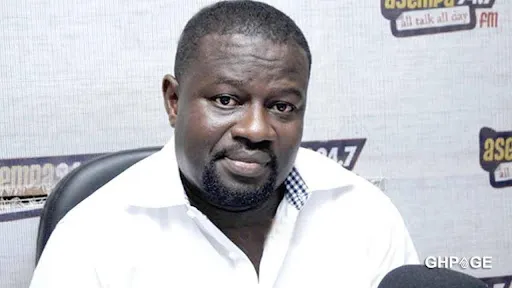Claim: Frank Annoh-Dompreh, a lawmaker with Ghana’s governing New Patriotic Party (NPP), claims that one unique attribute of Koreans is that they retain a well-performing government.
Verdict: False. No evidence supports the Ghanaian legislator’s claim about South Korea or North Korea.
However, South Korea’s politics is dominated by two parties – the Democratic Party of Korea (DPK) and the People Power Party (PPP)– and each party has been in and out of power. Also, North Korea, considered an authoritarian country, has been ruled by the Workers Party with Kim Jong-un as the chairman since the demise of his father in 2011.
Full Text
A lawmaker with Ghana’s governing New Patriotic Party (NPP), Frank Annoh-Dompreh, has urged Ghanaians to vote for the party’s 2024 Presidential candidate, Dr Mahamudu Bawumia.
The Member of Parliament (MP) for Nsawam-Adoagyiri constituency said the government of President Nana Akufo-Addo has worked to improve the lives of Ghanaians since 2017.
“One unique thing about Koreans is that if a government is doing well, it is retained so citizens can reap the benefits,” Mr Annoh-Dompreh said in the Twi dialect.
See minutes 0:01 to 0:14 of the video shared on X for the Ghanaian lawmaker’s comment.
Data available on X showed that as of Sept. 12, 2024, the video had received over 26,123 views, 130 comments, 303 likes, and 51 shares.
Commenting on the video, an X user wrote:
“If these are our lawmakers, then we are doomed. A whole Nsawam?”
Another X user said:
“Is this a leader? NPP as a party under Akuffo-Addo has become a gang of useless liabilities incurring unnecessary cost to the state, how do we waste taxes on this as a member of parliament? Can’t we put our resources to a better use than wasting it on these bunch of emptiness.”
DUBAWA decided to probe the Ghanaian legislator’s claim as part of its campaign against misinformation and disinformation in the West African country.
Verification
No data supports the Ghanaian lawmaker Frank Annoh-Dompreh’s claim that Koreans are known for retaining a well-performing government.
Koreans are known to come from the East Asian ethnic group with a majority living in the two Korean nation-states of North and South Korea, collectively called Korea.
Whether Mr Dompreh was referring to South Korea or North Korea is unclear. However, South Korea’s politics is dominated by two parties—the Democratic Party of Korea (DPK) and the People Power Party (PPP)—and each party has been in and out of power.
DUBAWA’s research revealed that post-2013 politics in South Korea is dominated by these two parties: DPK, a liberal party, and PPP, a conservative party.
The Democratic Party of Korea and its predecessors have been in power for various periods, notably from 1998 to 2008 and 2017 to 2022.
Also, the People Power Party and its predecessors, including the Saenuri Party, were in power from 2008 to 2017 and from 2022 to the present (2027).
During South Korea’s 2022 election, Lee Jae-myung, the candidate of the ruling Democratic Party of Korea, lost to the conservative candidate Yoon Suk Yeol of the People Power Party.
Mr Suk Yeol won 48.56% of the ballot share, ahead of Lee’s 47.83%, South Korea’s National Election Commission said.
Chatham House, a London-based institute, has revealed that the presidential term in South Korea has been set at five years since 1988. “It was previously set at four years from 1948 to 1972, six years from 1972 to 1981, and seven years from 1981 to 1988,” data shows.
There is no evidence to support the claim that either the DPK or the People Power Party has been in power for ten years at any given time.
On the other hand, North Korea, which is considered an authoritarian country, has been ruled by the Workers Party, with Kim Jong-un as the chairman since his father’s demise in 2011.
Although there are two other small parties in North Korea, the Social Democratic Party (SDP) and the Chondoist Chongu Party (CCP), they all belong to the Democratic Front for the Reunification of Korea, headed by Kim Jong-un.
In Mar. 2019, North Koreans voted to elect the country’s rubber-stamp parliament, the Supreme People’s Assembly (SPA), in a mandatory exercise.
The election was the second to be held in the country since Kim Jung-un took over after his father died in 2011. The first election held in 2014 recorded a 99.97 percent voter turnout, North Korean state media reported.
However, unlike in South Korea, the President of North Korea is not elected through popular elections.
North Korea is controlled by the Kim family, one of the world’s longest-running dynasties, the Council on Foreign Relations noted.
Conclusion
The Ghanaian lawmaker Frank Annoh-Dompreh’s claim that Koreans retain a well-performing government is not backed by data.


